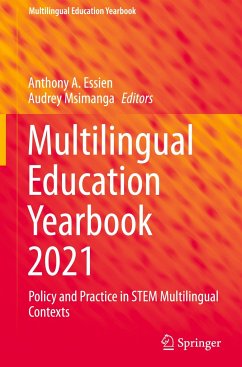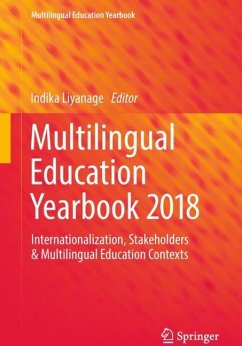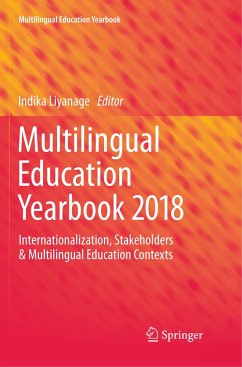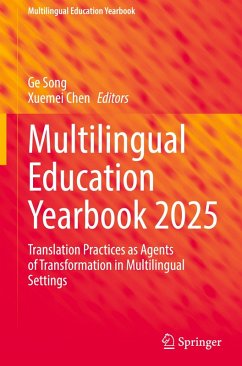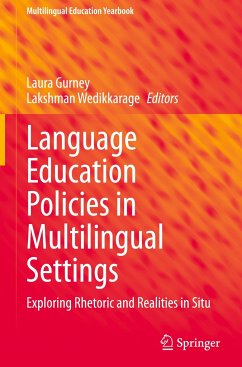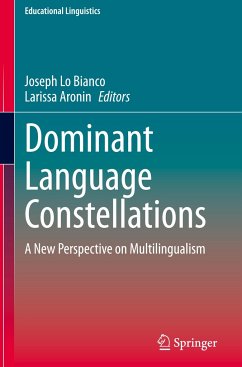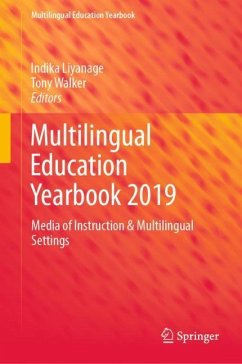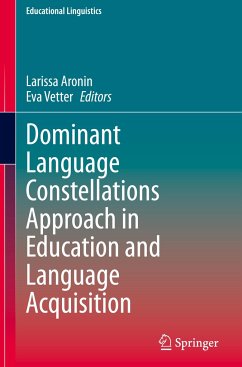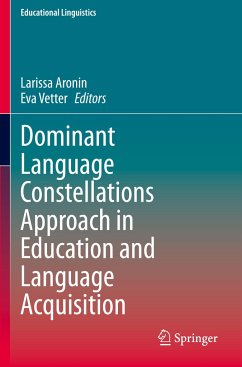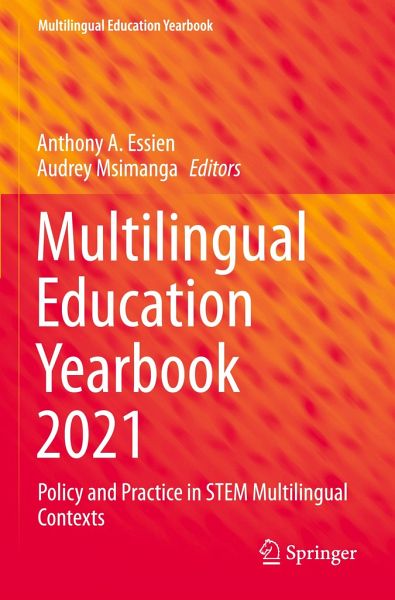
Multilingual Education Yearbook 2021
Policy and Practice in STEM Multilingual Contexts
Herausgegeben: Essien, Anthony A.; Msimanga, Audrey
Versandkostenfrei!
Sofort lieferbar
105,99 €
inkl. MwSt.

PAYBACK Punkte
53 °P sammeln!
This edited book attempts to foreground how challenges and complexities between policy and practice intertwine in the teaching and learning of the STEM subjects in multilingual settings, and how they (policy and practice) impact on educational processes, developments and outcomes. The unique feature of this book, thus, lies in its combination of not just language issues in the teaching and learning of the STEM subjects, but also in how these issues relate to policy and practice in multilingual contexts and how STEM research and practice may inform and shape language policies and their implemen...
This edited book attempts to foreground how challenges and complexities between policy and practice intertwine in the teaching and learning of the STEM subjects in multilingual settings, and how they (policy and practice) impact on educational processes, developments and outcomes. The unique feature of this book, thus, lies in its combination of not just language issues in the teaching and learning of the STEM subjects, but also in how these issues relate to policy and practice in multilingual contexts and how STEM research and practice may inform and shape language policies and their implementation in multilingual contexts.
This book is of interest to stakeholders involved in STEM education such as researchers, undergraduate and graduate students, tertiary level teachers, teacher educators, curriculum developers as well as other professionals with responsibilities in STEM education subjects. The book is written in a way that is accessible to a wide range of backgrounds, including those who are in language education.
This book is of interest to stakeholders involved in STEM education such as researchers, undergraduate and graduate students, tertiary level teachers, teacher educators, curriculum developers as well as other professionals with responsibilities in STEM education subjects. The book is written in a way that is accessible to a wide range of backgrounds, including those who are in language education.



